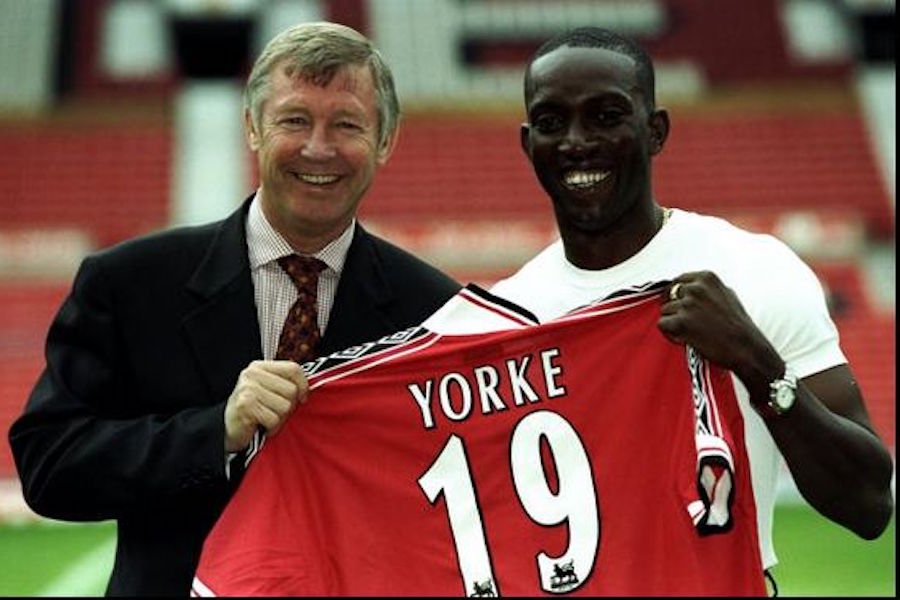As the transfer deadline loomed in the summer of 1998, Manchester United were running out of time to land another striker. Alex Ferguson, the knighthood would follow a year later, already had Andy Cole, Teddy Sheringham and Ole Gunnar Solskjaer on his books. But he wanted another type of centre-forward.
Patrick Kluivert was viewed as the top target for the Reds. The Dutchman had only been with AC Milan for a season but word was out he was on the market. Instead, he was reunited with a certain Louis van Gaal, his former Ajax boss, at Barcelona in a deal worth around £8.75 million. As ever, there was speculation that one of the aforementioned United forwards could be a makeweight in any bid for a new man.
”I do not want any cast-offs at this club,” retaliated Aston Villa boss John Gregory, when Dwight Yorke was earmarked by Ferguson. “If players are not good enough for Manchester United, then they are not good enough for Villa.” Indeed, Gregory had no intention of allowing the Trinidad & Tobago international to leave. Famously, his response to being told by his star man that he wanted to go was: “If I had a gun, I would have shot him.”
The comment made for back-page headlines and Villa were playing hardball. With good reason as Yorke was tied to a long-term contract – I remember speaking to him the day he signed it when working at ClubCall. It was in the days of car phones and it wasn’t easy to pin him down but, when I did, he seemed relaxed and chilled - just as he has been every time I've been lucky enough to work with him here at United.
So an impasse was reached, even if Yorke was desperate to join United. Pierre van Hooijdonk had caused controversy by effectively going on strike at Nottingham Forest as he agitated for a transfer but the Villa man was not keen to follow suit.
“It is very flattering when a club of United’s stature come out publicly and say they want you,” he stressed. “That doesn’t usually happen. I firmly believe it would be the right move for me and, maybe if I had taken the same approach as van Hooijdonk has with Forest, then I would have made it happen already. But that is not my style and it won’t ever be. I would have liked to have joined United in the summer. Chances like this only come along once and I had asked the boss and the Villa board for their understanding.”
He started the season with Villa, playing against Everton, and time was running out to conclude a deal. It would take a record fee of £12.6 million to convince the Midlanders to do business and many observers at the time felt it was a case of overpaying for somebody unproven at the top level in Europe. But Yorke had shown his potential and had the X-factor Ferguson was looking for. A bubbly character who would lift any dressing room, his work at Villa Park had not gone unnoticed.
I recall one live TV match against Newcastle United, when he scored a hat-trick in a 4-3 defeat, that showcased his striking ability and also a cheeky Panenka penalty past David Seaman, of all people. To put this moment of impudence into perspective, it sealed European football for his club at the end of the 1997/98 campaign and took some confidence.
A vital piece in the jigsaw had arrived at Old Trafford and would go on to enjoy the most amazing of debut seasons. And maybe that is why Dwight Yorke was the perfect fit for Ferguson’s Manchester United.
He always played with a smile on his face and did not seem affected by nerves or any pressure considering the price-tag on his head. With Cole, Sheringham and Solskjaer already at the club, he would have backed himself to get into the team and start repaying that fee.
The opinions in this story are personal to the author and do not necessarily reflect the views of Manchester United Football Club.
SOURCE: manutd.com

